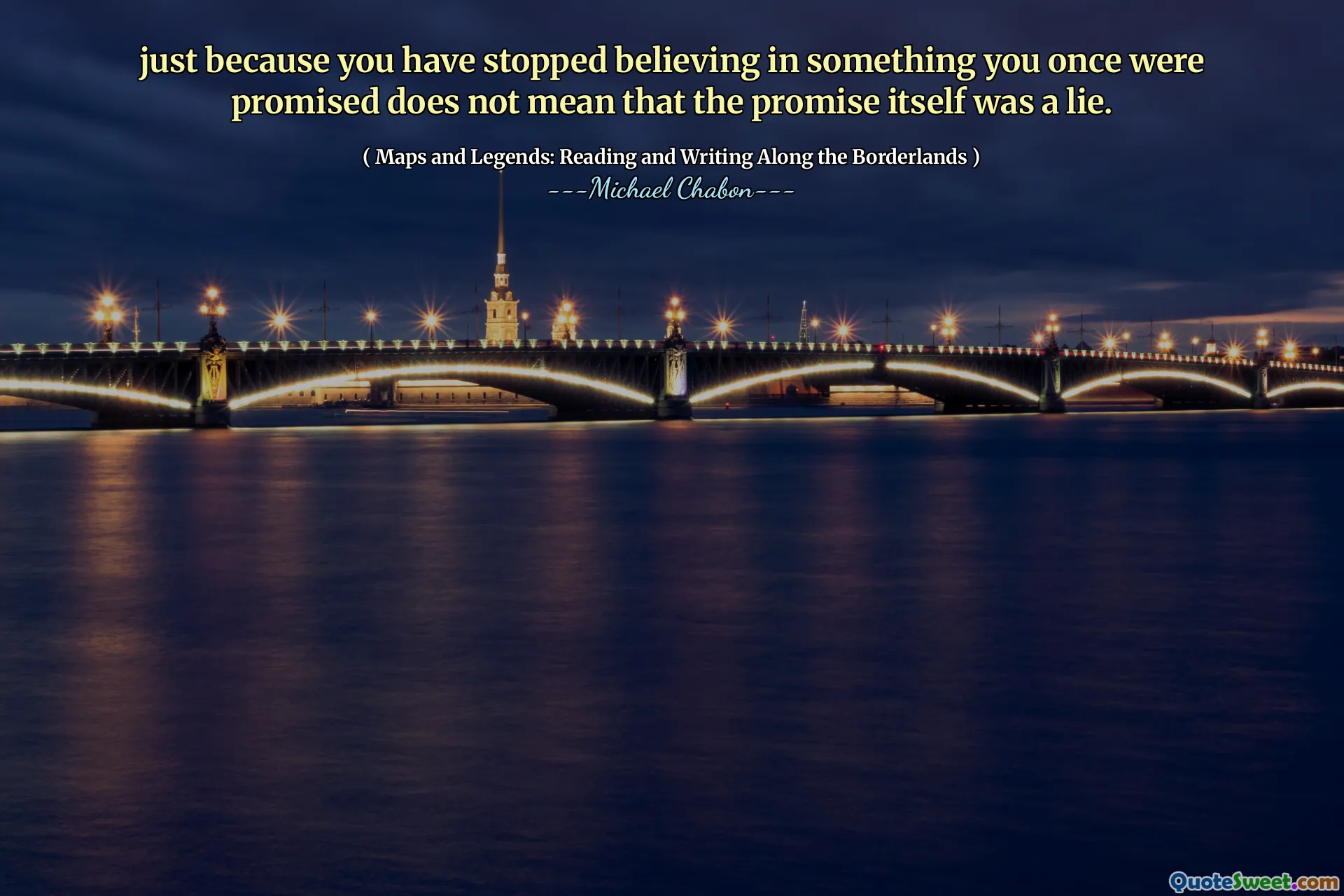
just because you have stopped believing in something you once were promised does not mean that the promise itself was a lie.
This quote touches on a profound aspect of human experience—our relationship with promises and beliefs. Often, people experience disillusionment when they realize that the assurances they relied on no longer seem valid or trustworthy. Yet, the cessation of belief does not inherently negate the existence or validity of the original promise. In many cases, promises are rooted in societal, cultural, or personal hopes that persist beyond the moment of trust. For example, someone might lose faith in a specific political leader or institution but still believe in the fundamental ideals that the institution was meant to uphold. This distinction highlights the nuance between disillusionment and deception. It also emphasizes the importance of critical thinking and emotional resilience. When individuals face unmet expectations, they might absolve themselves from future trust to protect their emotional well-being. However, true understanding often involves recognizing that the absence of belief does not automatically equate to a lie or a betrayal. It can simply reflect a rational reevaluation based on experience. By acknowledging that promises may have genuine intentions behind them, even if they are broken or unfulfilled, we develop greater empathy and nuanced perspectives. The quote encourages us to distinguish between the failure of belief and the potential truth of initial commitments. It reminds us that trust can be complex and fragile, but also that the absence of belief does not erase the potential honesty behind the initial promise. This perspective fosters compassion and ongoing hope in our interactions and expectations with others.






